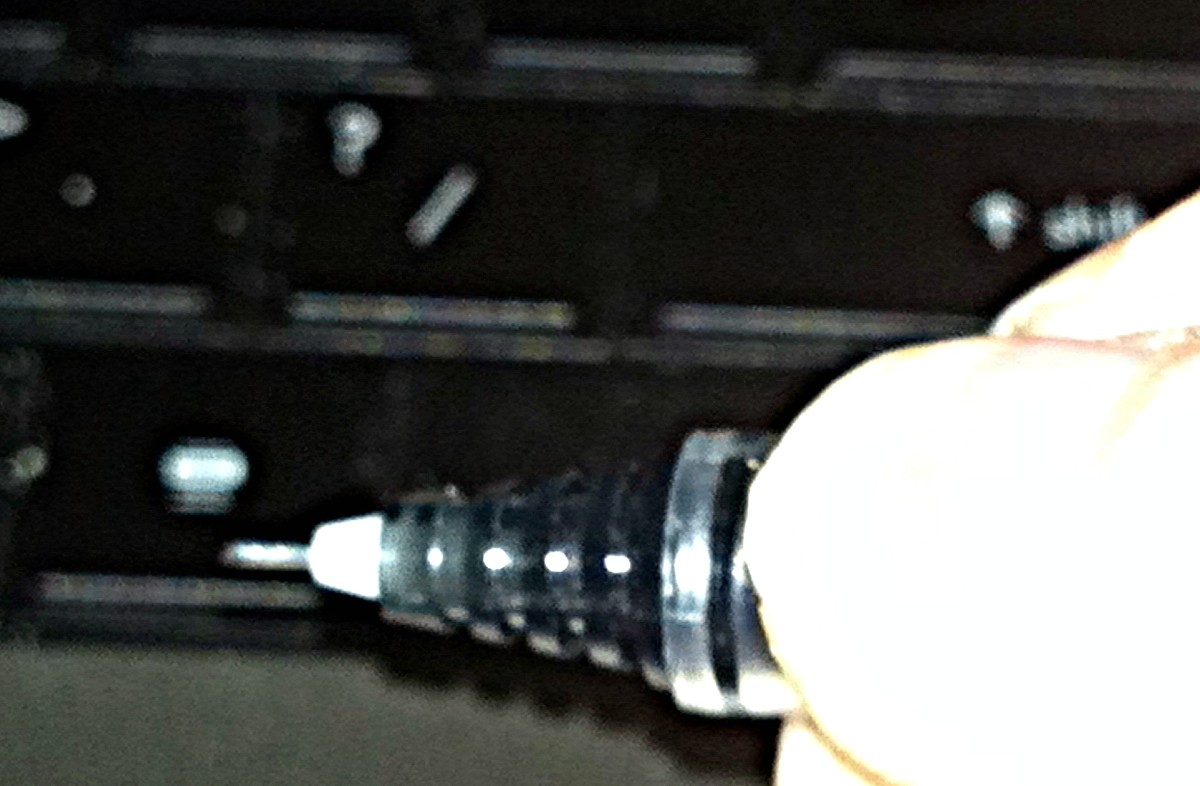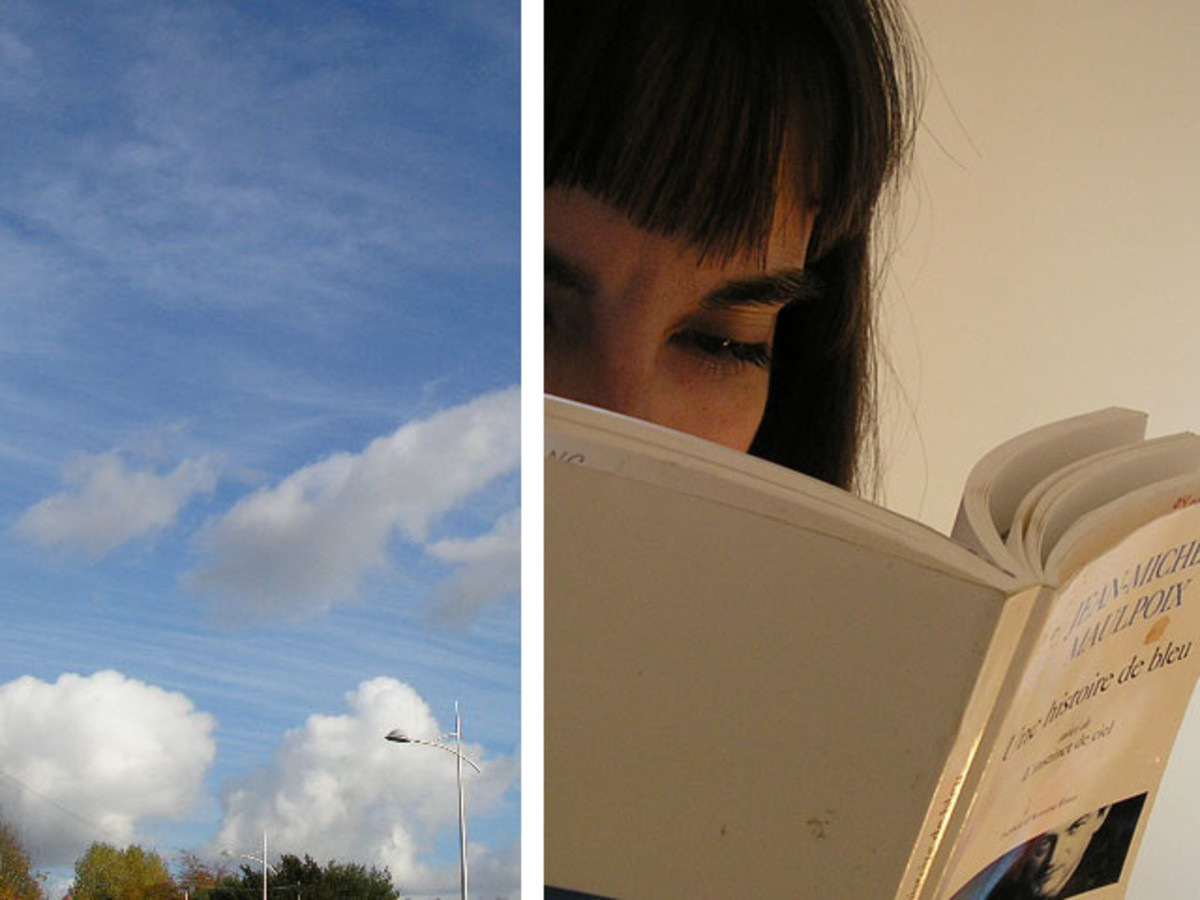How to Improve Your Writing Skills in a Snap
Writing is a Fun Skill that Needs Constant Practice

A Little Writing Quiz: Ten Common Blunders in English
First, take a brief quiz to see where you are currently at. Mark your answers (A, B, and so on) on scratch paper or a digital equivalent thereof.
1. "alot"..... A. Correct ..... B. Incorrect
2. "I'm inviting Mr. and Mrs. Smith, John and Mary to dinner."
..... A. I'm inviting 2 people to dinner.
..... B. I'm inviting 4 people to dinner.
..... C. It's unclear whether 2 or 4 people will be invited based on this sentence.
3. "10 items or less" ..... A. Correct ..... B. Incorrect
4. "Drive-through window" ..... A. Correct ..... B. Incorrect
5. "Learn your ABCs." ..... A. Correct ..... B. Incorrect
6. "Wait til later." ..... A. Correct ..... B. ..... Incorrect
7. "ain't" ..... A. Correct ..... B. Incorrect
8. "This is home made." ..... A. Correct ..... B. ..... Incorrect
9. "Buy one, get two." ..... A. Correct ..... B. ..... Incorrect
10. "The biweekly report shows..."
..... A. This report comes out every other week.
..... B. This report comes out twice every week.
..... C. It is unclear whether this report comes out every other week or twice every week.
Refer to the end of the article for the answers to this quiz.
Laura's First Law: Everybody Knows One or Two Writing Rules VERY well
Laura's First Law: One of the best ways to improve your writing is to remember this simple rule: no matter how badly a person writes, everybody knows at least one or two writing rules very well and will always notice these mistakes in what they read. In other words, it's okay to be paranoid about errors in your writing. Your readers and editors will thank you!
The Language Police
Yes, the spelling and grammar police are there, members of your readership, whether you realize it or not. You may call them customers, bosses, co-workers, or sales prospects, but they're also The Language Police [cue scary musical sound effect]: the more mistakes you make, the less your readers will trust what you're saying and/or your company and the product/message you're selling.
Quick Help: Read The Elements of Style by Strunk and White
The best thing to do to improve your writing quickly and (relatively) painlessly is to read Strunk and White's classic The Elements of Style on a regular basis. As a writer, I read it frequently and give out copies of this little gem almost as though they were business cards.
The Elements of Style is a quick, cheap (usually under $10), and--for a how-to book on writing--painless read for anyone interested in improving their writing. Spend part of an afternoon and pick up one or two rules you used to know, or should have learned, back in grade school and begin using them correctly. Pay particular attention to punctuation, especially the comma and the apostrophe, which are rarely used correctly these days. Use a highlighter as you read to mark your particular trouble spots for quick reference later on.
Memorizing and executing some simple rules will boost your written communications skills tremendously in no time, and with it your credibility will rise. Pick up a copy of "Strunk & White's", as writers affectionately call it, and your writing skills, as well as your acceptance by readers, will already have improved tremendously if you learn how to fix two or three common errors in your writing (punctuation, word usage, sentence structure, and so on).
Laura's Second Law: Say it Right, Write it Right
Laura's Second Law: What you speak is what you will write. If you speak in correct terms, you will write correctly. If you develop bad speaking habits, however, those will creep into your writing, to your detriment (and to the woe of your editor).
Caveat: Pauses in speech DON'T mean "add a comma here", however! When writing, you must punctuate correctly regardless of when you need to take a breath when reading out loud. Reading out loud is very helpful in proofing your work--but it, too, has limitations.
Answers to the Writing Quiz—With Explanations
1. "alot"..... B. Incorrect. It should always be "a lot" (two words) if you are talking about lots of stuff, or "allot" if you are talking about dividing up stuff between people. Put "alot" in your autocorrect dictionary in your writing software so that it automatically changes to "a lot".
2. "I'm inviting Mr. and Mrs. Smith, John and Mary to dinner."
..... C. It's unclear whether 2 or 4 people will be invited based on this sentence. That's because there is no comma after John. Without the comma, "John and Mary" could be the first names of Mr. and Mrs. Smith, or they could be the two children of Mr. and Mrs. Smith, or simply two people unrelated to the Smiths.
This is the "serial comma" issue that editors frequently get into heated arguments about ("A, B, and C" vs. "A, B and C"). In this age of fast-changing, multi-word technology, I have to side with the editors that choose to ALWAYS use the serial comma--then the rule is black-and-white and nobody can write or interpret it incorrectly. (And there will be plenty of food and enough place settings at the table for everyone, every time.)
3. "10 items or less" ..... B. Incorrect. This should use "fewer" rather than "less" since we are talking about a specific quantity, and to make the fragment correct it should read "10 or fewer items". Very strictly speaking, it should be "Ten or fewer items."
4. "Drive-through window" ..... A. Correct. "Thru" is a slang term started by the folks that make the "Drive-through" signs so that the signs can be made smaller. It should not appear in formal English writing.
5. "Learn your ABCs." ..... A. Correct. If you thought that it should be "ABC's", then remember the rules of how apostrophes are supposed to be used. The apostrophe can either replace missing characters out of a contraction (isn't, can't, I'll)--which is not applicable in this case--or it indicates possession/ownership of something (Paul's bike, Sarah's skates)--also not applicable in this case because we're not saying that "ABC" owns anything. Therefore, it is simply a plural and should be treated that way: ABCs, CD-ROMs, IDs, and so on.
6. "Wait til later." ..... B. Incorrect. The word "til" has never existed except incorrectly spelling one of two words: "until" or "till" (as in "till the field" or the cash register's "till"). The correct phrase should be, "Wait 'til later," or better yet, "Wait until later."
7. "ain't" ..... B. Incorrect. This is an old error that has become very popular in some areas of the English-speaking world. You will even find it in dictionaries without anything indicating that it is formal, proper English. "Ain't" is supposed to be a contraction of "is not" and several other "____ not"s--kind of an all-purpose weasel word.
Either replace "ain't" with the correct terms, such as "is not", or rewrite the sentence. If you are a serious writer, want to become one, or simply want to have properly educated language that won't confuse anyone, then "ain't" has no place in your spoken English, either, because if you get used to using it in speech it will quickly sneak into your writing. It just ain't right.
8. "This is home made." ..... B. Incorrect. The words "home" and "made" are one word: homemade, meaning something that you yourself or some other person made or especially cooked in your own house. However, I believe the food industry defines it as "anything made on the premises on which it is sold". I can see the food industry's point of view, but I have a hard time with that definition because it could mean that McDonalds' hamburgers and meals containing sausage are made in that facility in which case they are "homemade", or that "homemade donuts" are being made on the premises of your local gas station (yuck). That's the way it is, though, so that's the way it's edited formally: I don't control the language.
9. "Buy one, get two." ..... A. Correct. I've often seen, "Buy 1 get 1", which only makes sense: if you've paid for one then you should receive the one you paid for. Other variations of mistakes: "Buy 1 get 1 free". Of course it's not free if you had to pay money for something that the seller chose to include in addition to the item you wanted to buy; this is true whether the item is an extra bottle of shampoo, just like the one you wanted, or an unrelated item, such as a duffle bag with the hockey skates you bought.
10. "The biweekly report shows..."
..... C. It is unclear whether this report comes out every other week or twice every week. That's because "biweekly, bimonthly, biannual," and similar terms mean both "every other (time period)" and "twice every (time period)". Best to rewrite the given sentence fragment using "twice-weekly" or "alternate week (or twice monthly, which would change the schedule a bit from time to time)" in place of "biweekly".
If you scored.....
Number of
Correct Answers:
8 -10 You are a good writer who rarely falls prey to the common blunders most writers make.
5 - 7 You are a good writer but have room for improvement.
4 - 6 You are an average writer compared other writers, and a pretty good writer compared with the general public.
3 - 5 You are a writer who needs improvement or a good editor to continue as a writer, and an average writer compared with the general public.
0 - 2 You are in need of improvement right away: LOTS of improvement if you are a semi-professional writer, and a good deal of improvement compared with the general public. Things that you write may well confuse the reader or send a different message than what you intended! In any case, you may not realize it but your lack of language skills is holding you back, and people may even assume you are unintelligent just because of this.
About the Author
Information about the author, a list of her complete works on HubPages, and a means of contacting her are available over on Laura Schneider's profile page.
© 2009 Laura Schneider









